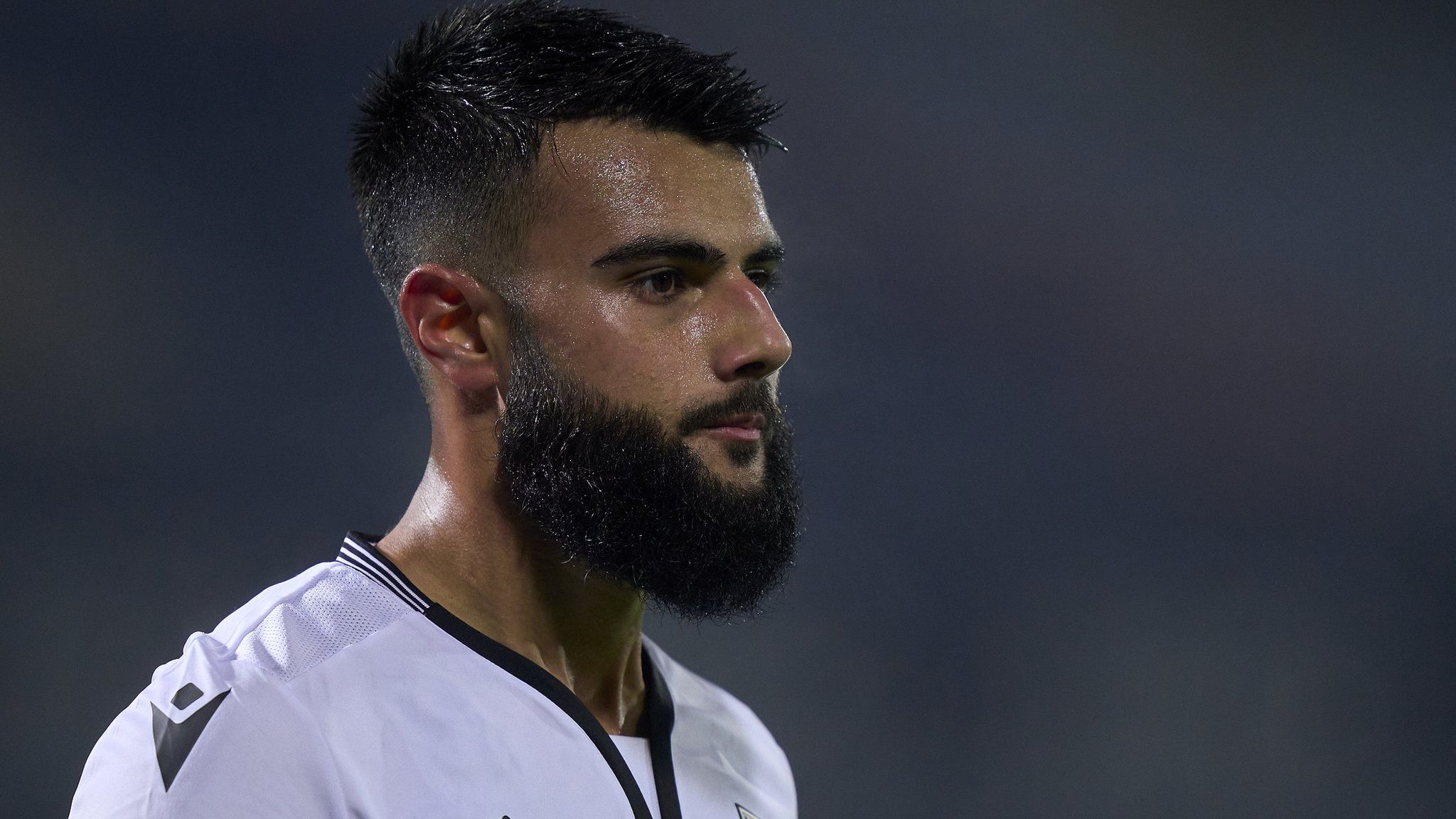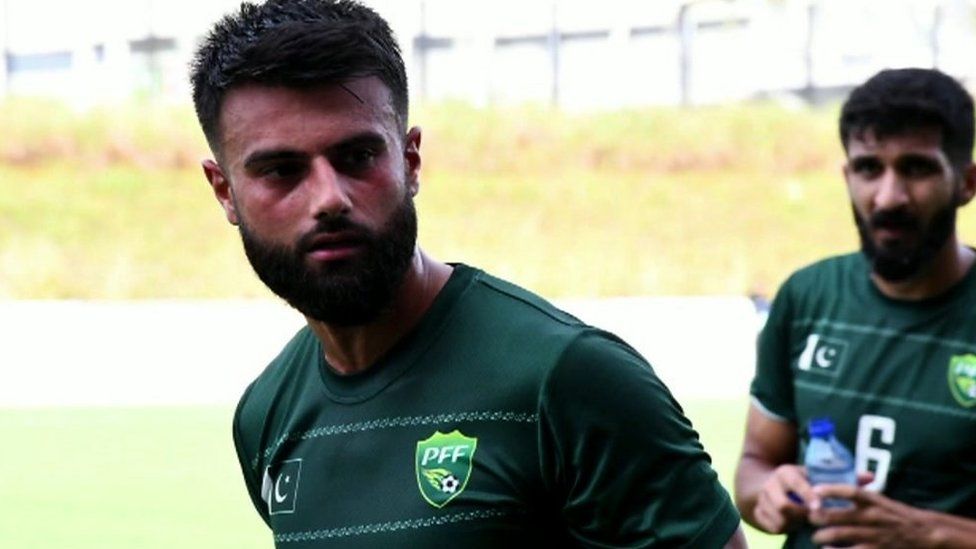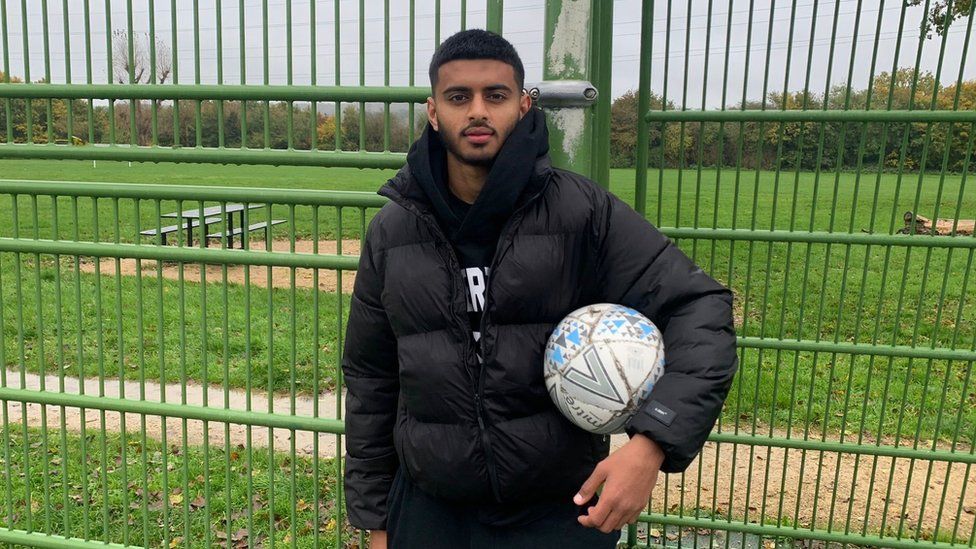
Even the biggest British football fans can probably be forgiven for not knowing the name Harun Hamid.
The 19-year-old was released by second-tier side QPR at the end of last season and currently doesn’t play for a professional side.
But just last month Harun’s name was on the lips of millions of people in Pakistan when he scored the biggest goal in their World Cup qualifying history.
His goal saw the country beat Cambodia 1-0 for their first win in five years – putting them through to the second round of qualifying for football’s biggest tournament for the first time.
“I was just filled with adrenaline and had to hit the knee slide in front of the fans,” London-born midfielder Harun tells BBC Asian Network.
Pakistan’s reward for the win is their highest profile game to date, a match against Saudi Arabia – the only team to beat World Cup winners Argentina at last winter’s tournament – at 16:30 GMT on Thursday.
“We’re playing against the team that beat Messi’s Argentina and we don’t even have a pro league,” Harun says.
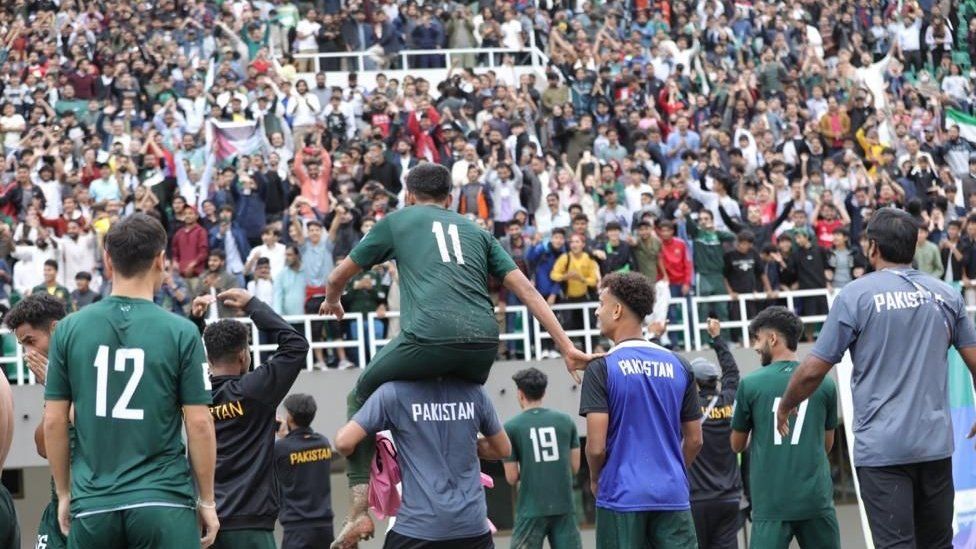
Pakistan has the 5th largest population in the world with around 240 million people, but its football team is ranked a lowly 193rd – one place below the island of Aruba and two above the Seychelles.
The fact that it doesn’t have its own professional league, as Harun says, is one of the key reasons that British Pakistani players like him are being called up to play for the national team under dual nationality rules.
“Growing up I didn’t even know Pakistan had a team if I’m honest, so I never thought I’d be playing for them one day,” he says.
“But the opportunity came and to play on the world stage in front of huge crowds is a dream come true.
“Hopefully after the win, more young boys like me will consider playing for Pakistan.”
‘This is just the start’
Harun isn’t the only British Pakistani player in the squad, there’s also former England under-19 captain Easah Suliman and Otis Khan who plays for Grimsby in League Two.
Another player hoping to be involved in the game against Saudi Arabia is 21-year-old Imran Kayani, who’s joining the Pakistan squad for the first time.
He grew up in Woking and plays for non-league side Whitehawk FC in Brighton.
“When the opportunity came, it was an absolute no-brainer,” he says.
“I’m just so excited to get going.”
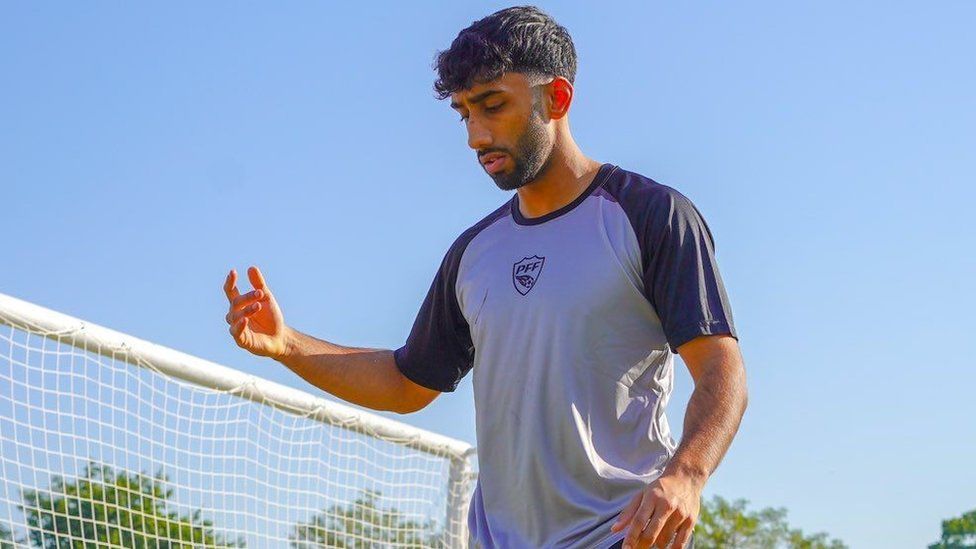
The win against Cambodia was a much needed boost for football in Pakistan, after a difficult period which meant they didn’t play a home match for eight years.
National football in the country has also been suspended twice by Fifa in the last four years for “undue influence from third parties”.
But Imran is confident that British Pakistani players like him can make a difference to their fortunes.
“A lot more light has been shone on Pakistan football in the last month,” he says.
“There’s a lot of British Asian talent in the UK, in the academies. We really want to push Pakistan in a good direction.”
One of the reasons Pakistan is happy to look to the UK for players is because their manager is Englishman Stephen Constantine.
He’s known as one of the most accomplished football coaches in Asia – having managed seven national teams, including India twice, in a 20-year career.
“The difference with India, for example, is they have the Indian Super League,” he says.
“Players here are struggling to get regular games or even training.
“The diaspora players do but we’re not at a stage yet where we’ll have 11 players playing abroad.”
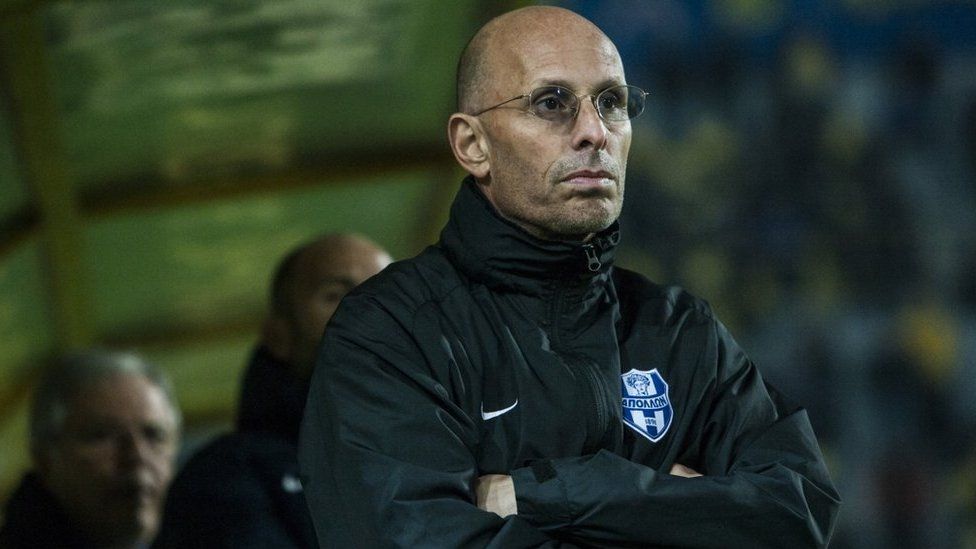
Pakistan are now in a group with Jordan, Saudi Arabia and Tajikistan in their bid to qualify for the 2026 World Cup.
Stephen recently told BBC Sport managing them will be his “hardest challenge” yet, but he’s confident he can find the players to build on their historic win.
“I do have a list of all the players who could play for us and I’m going to travel the world to see them,” he says.
“There is talent here like there is in every country. It’s just a case of developing it and going out to find them.”
And British players like Harun are well aware of what a big opportunity they’ve been given.
“It’s putting ourselves on the biggest stage. This is what we need to grow as a footballing nation, this is just the start for us hopefully.”
Additional reporting by BBC Sport’s Katie Stafford


-
-
4 September 2018
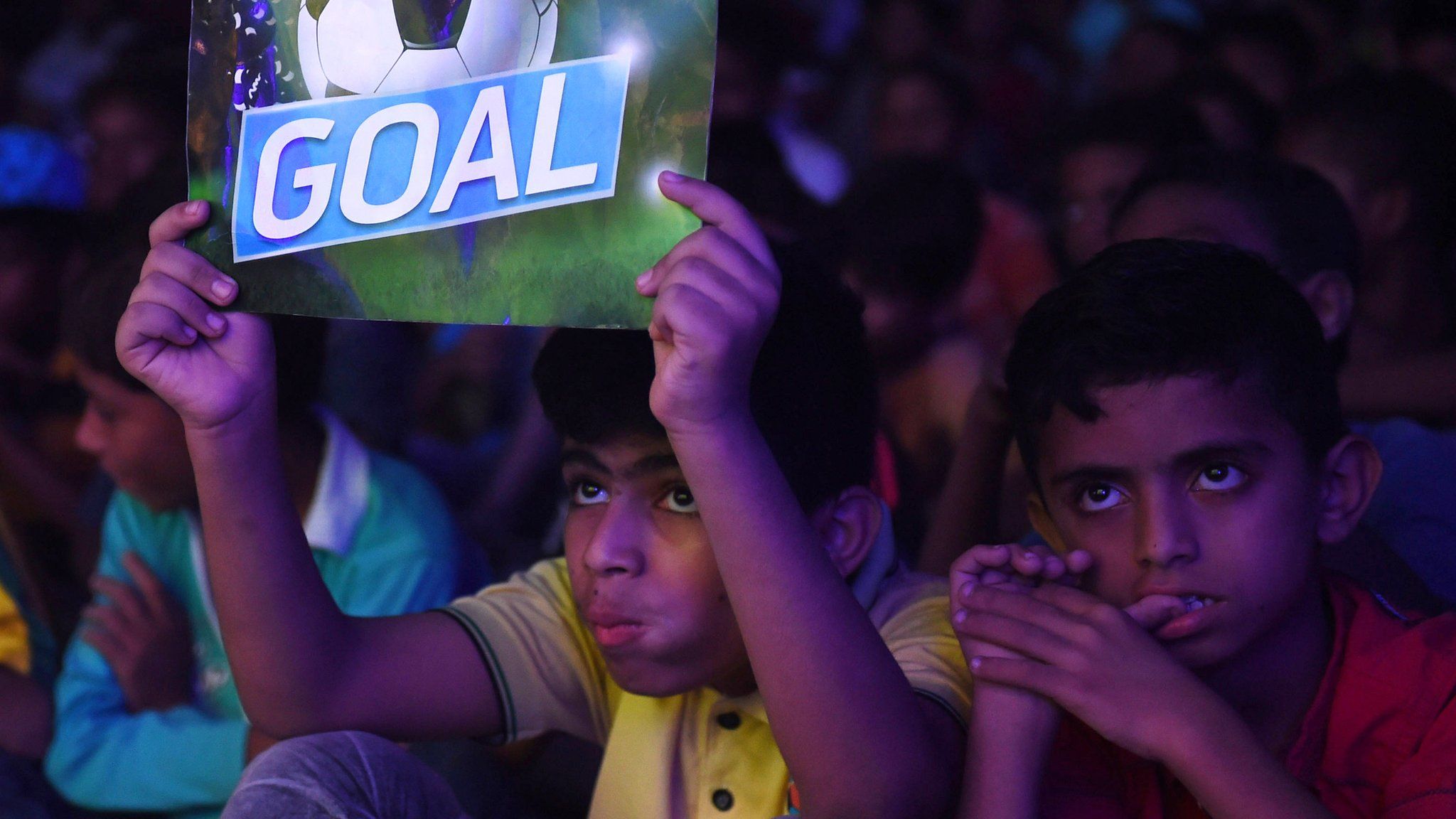
-



